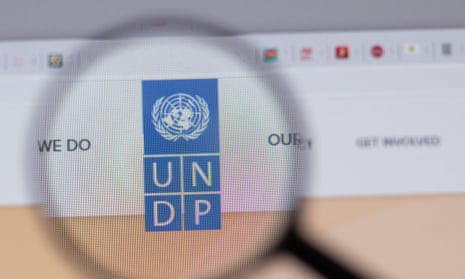Exclusive: whistleblowers allege large sums are being lost to corruption in Iraq as donors fail to track spending on postwar reconstruction

The UNDP launched a £1.5bn reconstruction programme after Islamic State forces were defeated in Iraq but much has been wasted, insiders claim. Photograph: Postmodern Studio/Alamy
Staff working for the UN in Iraq are allegedly demanding bribes in return for helping businessmen win contracts on postwar reconstruction projects in the country, a Guardian investigation has found.
The alleged kickbacks are one of a number of claims of corruption and mismanagement the Guardian has uncovered in the Funding Facility for Stabilization, a United Nations Development Programme (UNDP) scheme launched in 2015 and backed by $1.5bn (£1.2bn) in support so far from 30 donors, including the UK.
Since the 2003 US-led invasion, the international community has pumped billions of aid dollars into Iraq. Twenty years on, the country still suffers from poor services and infrastructure, despite being the world’s fourth-largest oil producer and generating a record-breaking $115bn in oil revenueslast year.
Corruption and kickbacks have been described as “the lifeblood of politics in Iraq”, which is why the UN carries out projects directly, promising more transparency than local institutions. In a statement to the Guardian, the UNDP said it had “internal mechanisms that prevent and detect corruption and mismanagement, supported by robust compliance procedures and internal controls”.
But interviews with more than two dozen current and former UN employees, contractors, Iraqi and western officials suggest the UN is fuelling the culture of bribery that has permeated Iraqi society since Saddam Hussein’s overthrow in 2003.